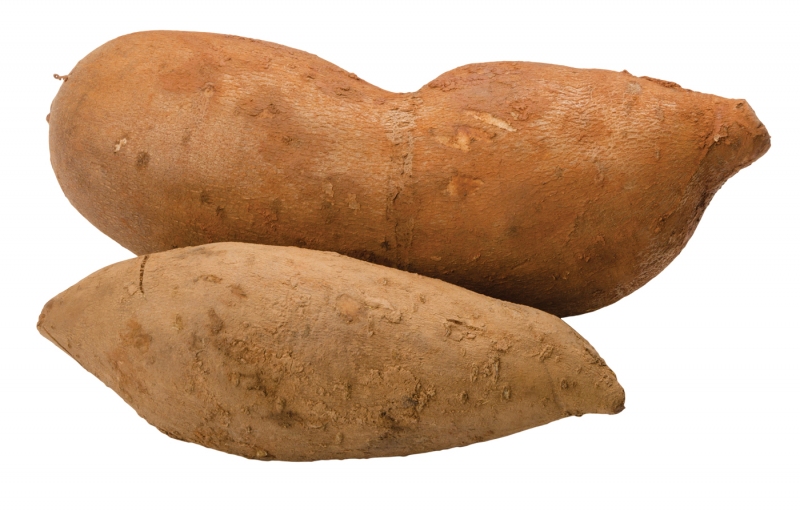This perennial has been growing in the northern and central Andes for centuries, yet only recently started showing up on North American shelves. While the yacon plant has small yellow flowers and often grows more than two metres high, it’s the root itself that’s so good for you.
Yacon is harvested by digging the potato-like root out of the soil. Sold in Edmonton in dry, powder or syrup form, yacon’s high nutritional and medicinal value makes it a incredibly popular superfood. “It has a lot of nice benefits to the human body. Sometimes you don’t get that combination of good for you and tastes good,” says Barry Knight, a health and wellness consultant at Earth’s General Store on Whyte Avenue in Edmonton.
Yacon is grown around the world in home gardens. In the 1980s, it came to Japan and from there spread to other Asian countries, including China and the Philippines. Versatile, tasty and healthy, it’s no wonder yacon root is so popular. It can be consumed raw, baked or in syrup form and can be used in everything from muffins to chai tea. If you do get your hands on this natural sweetener, there are a lot of easy ways to enjoy it.
The Look
This South American root is a member of the sunflower family. Plants produce large celery-like leaves and, beneath the soil, grow yacon’s juicy and edible roots, which “almost look exactly like a sweet potato in size, texture and colour,” says Knight. The root is both sweet and crispy, and is eaten as a refreshing snack in the Andes.
The Varieties
Yacon is a versatile plant that can be eaten raw, boiled, steamed, baked, prepared into a syrup or dried and ground up into powder. Yacon powder and dried yacon “chips” are sold at Noorish Conscious Eatery and Superfood Elixir Bar in Edmonton.
The yacon chips resemble dried pineapple rings, according to Sheniz Kassam, co-owner of Noorish. “The powder is 10 times more functional,” she says, and a popular choice to put into smoothies, pastries and desserts. The powder form of yacon can be used as a substitute for sugar in recipes ranging from muffins to ice cream. “It’s very attractive to those who want sweetness without the consequences of sweetness,” says Knight.
